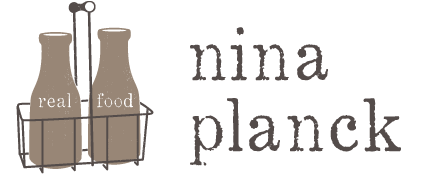New York Times Op-ed: Leafy Green Sewage
This op-ed by Nina Planck was published in the New York Times on September 21, 2006.
Farmers and food safety officials still have much to figure out about the recent spate of E. coli infections linked to raw spinach. So far, no particular stomachache has been traced to any particular farm irrigated by any particular river. There is also no evidence so far that Natural Selection Foods, the huge shipper implicated in the outbreak that packages salad greens under more than two dozen brands, including Earthbound Farm, O Organic and the Farmer’s Market, failed to use proper handling methods.
Indeed, this epidemic, which has infected more than 100 people and resulted in at least one death, probably has little do with the folks who grow and package your greens. The detective trail ultimately leads back to a seemingly unrelated food industry — beef and dairy cattle.
First, some basic facts about this usually harmless bacterium: E. coli is abundant in the digestive systems of healthy cattle and humans, and if your potato salad happened to be carrying the average E. coli, the acid in your gut is usually enough to kill it.
But the villain in this outbreak, E. coli O157:H7, is far scarier, at least for humans. Your stomach juices are not strong enough to kill this acid-loving bacterium, which is why it’s more likely than other members of the E. coli family to produce abdominal cramps, diarrhea, fever and, in rare cases, fatal kidney failure.
Where does this particularly virulent strain come from? It’s not found in the intestinal tracts of cattle raised on their natural diet of grass, hay and other fibrous forage. No, O157 thrives in a new — that is, recent in the history of animal diets — biological niche: the unnaturally acidic stomachs of beef and dairy cattle fed on grain, the typical ration on most industrial farms. It’s the infected manure from these grain-fed cattle that contaminates the groundwater and spreads the bacteria to produce, like spinach, growing on neighboring farms.
There remains only one long-term remedy, and it’s still the simplest one: stop feeding grain to cattle. So give the spinach growers a break, and direct your attention to the people in our agricultural community who just might be able to solve this deadly problem: the beef and dairy farmers.
